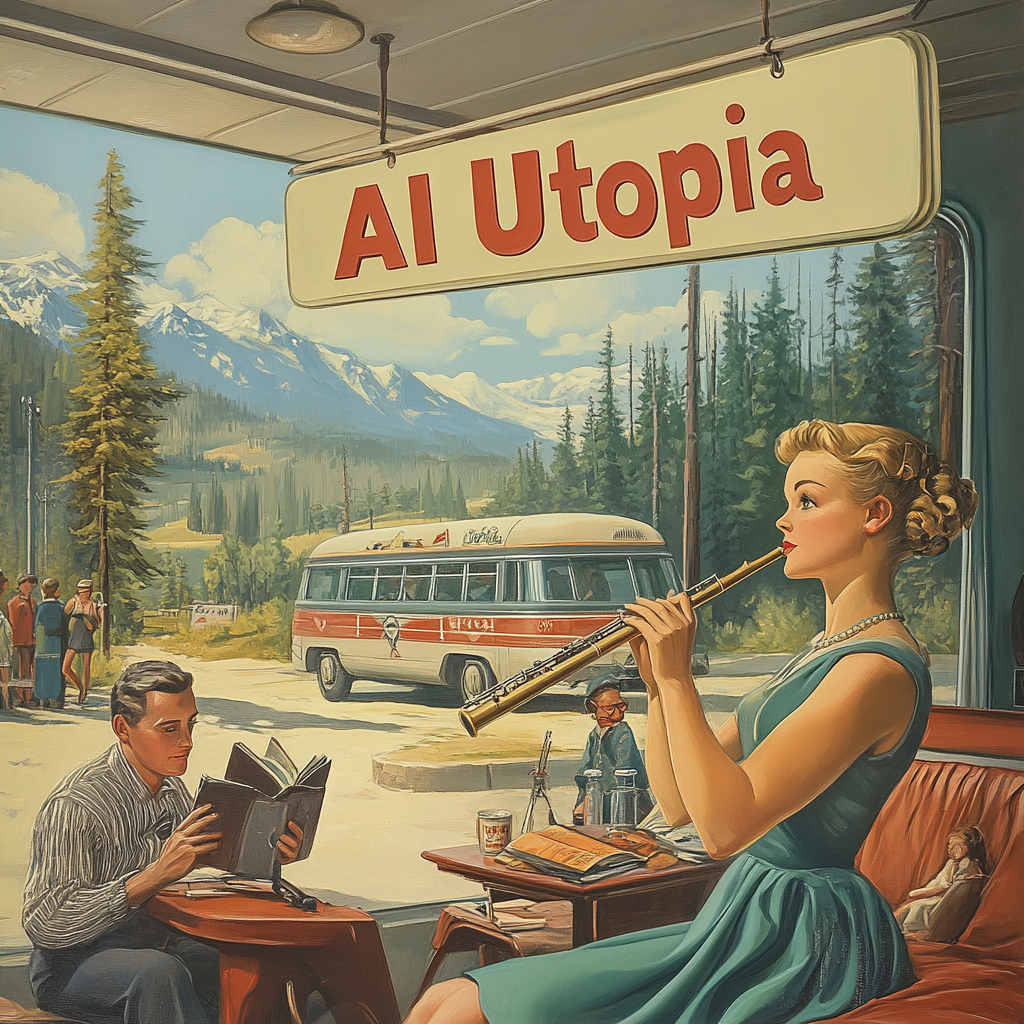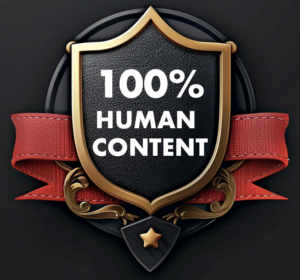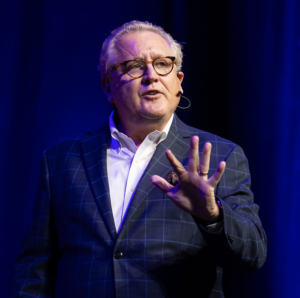
I am a fan of internet pioneer Kevin Kelly. His futuristic projections and books have informed much of my work. And while I don’t always agree with him, I pay close attention to his writing.
Last week, Kevin wrote a blog post titled The Handoff to Bots, which thinks through the implications of two colliding megatrends: global de-population due to a rapidly declining birthrate and the inevitable rise of AI bots taking over human jobs.
This collision seems calamitous — how many businesses depend on steady population growth for their economic progress? The specter of the population and job market simultaneously crashing in a freefall seems horrifying.
But Kevin is optimistic, even in the face of this probability. His thesis is that AI is not only capable of manufacturing and innovation but also driving consumption and economic growth. He contends this “handoff” from human labor to machine efficiency is essential for sustaining and improving living standards despite a declining human workforce.
What AI Utopia?
Kevin’s article repeats a familiar futurist theme: When the bots come, we’ll be able to do whatever we want to do! No more careers, no more toil. We will be living in Leisure World.
Go play. Or volunteer. Or write poetry. Hurray!
 When will a transition to a dreamy AI Utopia arrive? Job loss is already occurring in some sectors, like customer service, where thousands of jobs have been replaced by AI agents.
When will a transition to a dreamy AI Utopia arrive? Job loss is already occurring in some sectors, like customer service, where thousands of jobs have been replaced by AI agents.
But the initial tendency for these displaced workers isn’t to start watercolor painting or gardening. They’re looking for another job because there is no safety net for AI-replaced workers. There is no AI Utopia, at least not for the foreseeable future. There are bills to pay.
When will we see job displacement at scale? Many AI advocates say it’s soon, but I think it will be at least two to three years away. Why? Because every time a big tech shift seems imminent, it’s not. Tech moves fast, culture moves slowly, so there will be an adjustment period.
But, it’s coming. And when it does, there will be no mass migration to AI Utopia, as the futurists like to say. Most displaced people will be looking for jobs, not fishing trips. This is what’s nagging at me. What are the plans to help people navigate to a world without work? Who is planning for this?
Our smartest visionaries, like Kevin Kelly, think it’s inevitable.
But how?
Surviving AI Utopia
To get to the next step in my thought process, let’s assume we figure this transition out. The AI bots and humanoid bots arrive. They take millions of jobs. Somehow, the government extracts bot-created wealth from the technocrats, and re-distributes it equitably to the unemployed, and we indeed enter a new era of AI Utopia for humanity.
So we’ve arrived. But there is another aspect of this “do whatever we want” vision of Leisure World that’s unsettling. What exactly will we be doing with all this free time? Take endless vacations? Sit around writing poetry? Plant flowers?
If many careers go away, realistically, how will people fill their time? How many flowers can a person plant? My mind is boggled by the prospect that billions of work hours could suddenly be shifted to … what?
If and when we get through this transition to AI Utopia (5-10 years away?), there will be significant business opportunities ahead. Think about what businesses could thrive if they focus on 1) occupying all this vacant time and 2) creating meaning in our lives.
Occupying time
Part of the new AI Utopia will indeed be leisure. Follow your dreams! Thinking this through, there could be a huge surge for any products and services that serve these areas:
- Creative Industries: Art, music, literature, and design could experience a renaissance as more individuals pursue creative expression and innovation. Lessons, art supplies, crafts.
- Entertainment and Media: Immersive virtual reality experiences, gaming, and digital content production would evolve to offer personalized, high-quality entertainment. High-end electronics, gaming, gambling.
- Travel and Experiential Tourism: As disposable time increases, tourism may shift toward experiential and culturally rich travel, emphasizing unique, transformative journeys. Hunting, fishing, premium travel.
- Wellness and Personal Development: Sectors focused on physical health, mental well-being, and self-improvement—such as fitness, mindfulness, and holistic health services—are likely to expand. Trainers, studios, fitness apps, gear.
- Lifelong Learning and Education: Education could transform into an ongoing, enrichment-focused experience rather than a strict career path, fostering personal growth and new skill development. It could be a niche for universities or, more likely, community colleges.
Not an exhaustive list. But if you’re looking at a transitional career, these areas might be good bets.
Creating meaning
When the bots come, some people will just drop out, take the government replacement income, and sit on the beach all day. But I think most people will want something more than a hobby to occupy their time. They’ll need to replace the meaning and personal value that comes with having a job.
This will be a significant problem: Creating personal meaning for millions of unemployed people! So if you figure out a way to do that when AI Utopia arrives, you’re probably on a path to success. How might people find new meaning?
- Community and Social Engagement: Social clubs, local cultural events, and artisan markets might thrive. Might be an opportunity for a fresh approach to local service clubs.
- Spiritual Pursuits: I think there will be a renaissance in religion and religious studies. Joining a church community can provide meaning as well as companionship.
- Volunteerism. Perhaps the greatest benefit of Leisure World will be a passionate workforce ready to solve problems, protect our planet, and lift up the needy.
Another interesting side note on volunteerism. A recent experiment with a universal basic income found that when people had a stable monthly flow of money, their charitable giving increased. So the AI Utopia future might mean more volunteers and also more funding.
The asteroid we’re ignoring
There was news recently about an asteroid that might hit Earth in 2032. The probability is less than 1%, but scientists have already tested processes to alter its path. Cool.
What are the chances that AI and robots will displace millions of jobs by that same year? Far higher than 1%. Yet we have no deflection plan. No preparation strategy. No safety systems.
As we move closer to this inevitable collision of depopulation and unemployment, you’ll hear this refrain about humans being “free to pursue anything they want” over and over again. That’s not a solution. That’s the beginning of the real problem.
The next time the AI experts claim how we’ll all be free to do whatever we want in this AI future, ask them what that actually means.
Ask them who’s building the bridge.
Ask them who’s creating the safety nets.
And, ask yourself, what are our business plans for preparing for both the problems and opportunities of a drastically changing world?
 Need a keynote speaker? Mark Schaefer is the most trusted voice in marketing. Your conference guests will buzz about his insights long after your event! Mark is the author of some of the world’s bestselling marketing books, a college educator, and an advisor to many of the world’s largest brands. Contact Mark to have him bring a fun, meaningful, and memorable presentation to your company event or conference.
Need a keynote speaker? Mark Schaefer is the most trusted voice in marketing. Your conference guests will buzz about his insights long after your event! Mark is the author of some of the world’s bestselling marketing books, a college educator, and an advisor to many of the world’s largest brands. Contact Mark to have him bring a fun, meaningful, and memorable presentation to your company event or conference.
Follow Mark on Twitter, LinkedIn, YouTube, and Instagram
Image courtesy Mid Journey


